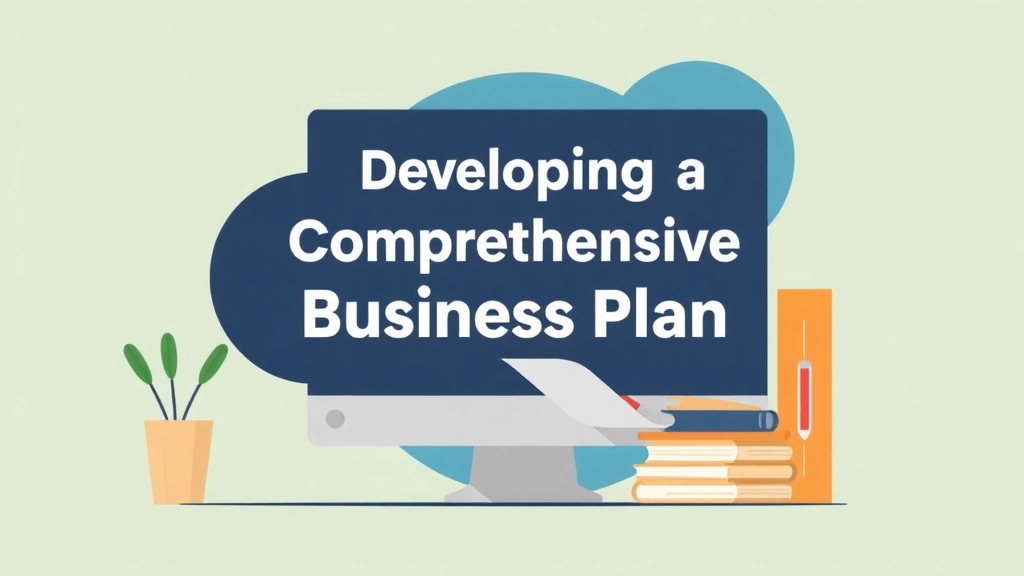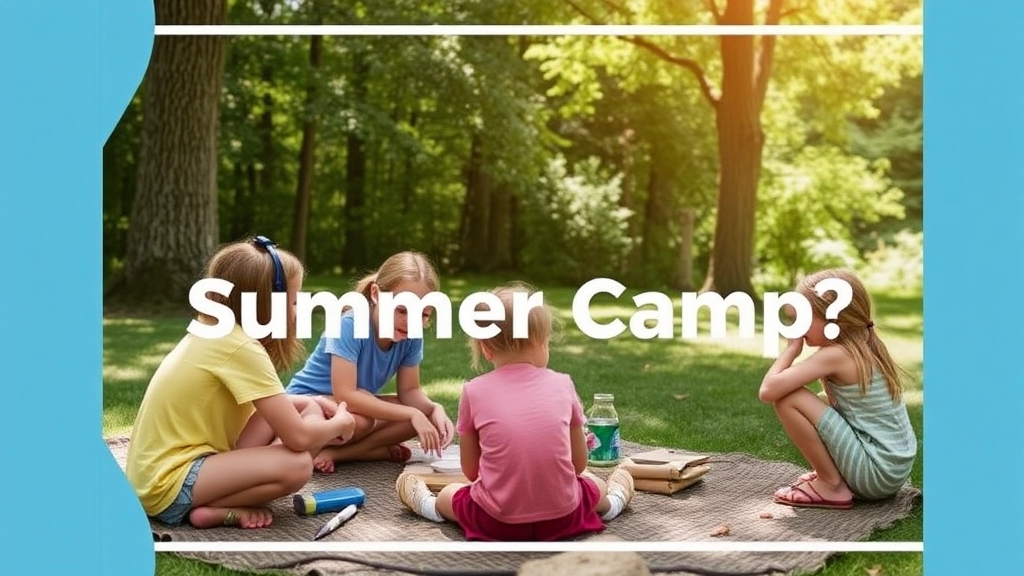How Do I Start A Summer Camp?
You’re in the right place! Starting a summer camp can be an exciting venture, whether you’re an entrepreneur, educator, or parent. First, decide on your camp’s focus and theme. Will it be sports, arts, or adventure? This sets the tone for everything else. Once you have a clear vision, it’s time to develop a comprehensive business plan. This includes budgeting, securing funding, and managing financials to ensure your camp is sustainable.
Next, dive into the nitty-gritty of legal requirements and permits. Research local regulations to make sure you’re compliant. Hiring and training the right staff is crucial for a smooth operation. Look for passionate individuals who align with your camp’s vision. Finally, design engaging programs and activities that will captivate your campers. Don’t forget to market and promote your summer camp to attract the right audience. With these steps, you’re well on your way to launching a successful summer camp!
Choosing Your Summer Camp Focus and Theme
Alright, let’s dive into the nitty-gritty of choosing your summer camp focus and theme. This is where the magic begins, and trust me, getting this right can make or break your camp. So, how do you decide what your camp will be all about?
What Are Parents and Kids Really Looking For?
First off, think about what parents and kids are actually looking for. Parents want a safe, enriching environment. Kids? They want fun, excitement, and a place to make friends. So, how do you balance both?
- Safety and Enrichment: Parents are looking for a place where their kids will be safe, learn new skills, and come back home with stories to tell.
- Fun and Friendship: Kids just want to have a blast and make new friends. Think about activities that are engaging and foster social interaction.
What’s Your Passion?
Next, let’s talk about you. What’s your passion? Because if you’re not excited about it, it’s going to show. Are you into sports, arts, science, or maybe outdoor adventures?
- Sports Camps: If you love sports, think about a camp that focuses on football, basketball, swimming, or even a mix of different sports.
- Arts and Crafts: If you’re the creative type, an arts and crafts camp could be your thing. Think painting, sculpture, and maybe some DIY projects.
- Science and Tech: For the tech-savvy, a science or coding camp could be a hit. Imagine kids building robots or conducting cool experiments.
- Outdoor Adventures: If you’re an outdoor enthusiast, consider a camp that involves hiking, camping, and survival skills.
Scoping Out the Competition
Now, let’s get real. You need to know what’s already out there. Check out other camps in your area. What are they offering? What’s missing? This is your chance to fill a gap in the market.
- Local Research: Visit other camps, talk to parents, and get a feel for what’s popular.
- Online Reviews: Read reviews of other camps. What do parents and kids love? What are the common complaints?
Crafting a Unique Theme
Once you’ve got a good sense of what’s out there and what you’re passionate about, it’s time to craft a unique theme. This is where you get to be creative. Your theme should be something that stands out and gets people excited.
- Combine Elements: Maybe your camp can combine sports and science, like a âSports Science Campâ where kids learn about the physics of their favourite games.
- Seasonal Themes: Think about themes that align with the time of year. Summer is great for outdoor adventures, while winter could be perfect for an indoor arts camp.
- Cultural Themes: Consider incorporating cultural elements. A âWorld Explorer Campâ where each week focuses on a different country could be a hit.
Real Stories, Real Success
Let me share a quick story. I once knew a guy who started a summer camp focused on survival skills. He was passionate about the outdoors and had a knack for teaching. His camp wasn’t just about learning to build a fire or pitch a tent; it was about building confidence and resilience. Parents loved it because their kids came back more self-assured. Kids loved it because it was like living in an adventure movie. That’s the power of a well-chosen focus and theme.
For more ideas on unique themes, check out our Top Camp Themes for Summer Fun and if you’re looking for inspiration on activities, don’t miss our Engaging Indoor Activities for Summer Camp Fun.
Developing a Comprehensive Business Plan

Ever wondered how to develop a comprehensive business plan for your summer camp?
It’s not as daunting as it sounds.
In fact, it’s a lot like planning a road trip.
You need a map, a destination, and a plan for pit stops along the way.
Let’s break it down.
Why a Business Plan?
First off, why do we even need a business plan?
Simple.
A business plan is your blueprint.
It’s the guide that will help you stay on track and ensure you don’t miss any critical steps.
Think of it as your camp’s survival guide.
Start with Your Vision
What’s your vision for the camp?
Do you see it as a place for kids to learn new skills, or is it more about fun and adventure?
Write it down.
Your vision is your North Star.
Define Your Goals
Next, let’s talk goals.
What do you want to achieve in the first year?
How about in five years?
Be specific.
Specific goals give you clear targets to aim for.
Market Research
Now, this is crucial.
You need to know your market.
Who are your competitors?
What are they offering?
Market research helps you understand where you fit in.
Financial Projections
Here’s where many get stuck.
But don’t worry, it’s simpler than you think.
You need to know how much money you’ll need to start and run the camp.
Break it down into:
- Start-up costs: Equipment, permits, marketing.
- Operational costs: Staff salaries, utilities, supplies.
- Revenue projections: Camper fees, merchandise sales.
Financial projections give you a clear picture of what’s financially feasible.
SWOT Analysis
Ever heard of a SWOT analysis?
It stands for Strengths, Weaknesses, Opportunities, and Threats.
Identify these for your camp.
It’s like doing a health check-up for your business.
Marketing Plan
How will you attract campers?
Social media?
Flyers?
Word of mouth?
A strong marketing plan ensures you’re not running a camp for crickets.
Risk Management
What could go wrong?
And how will you handle it?
Think about:
- Weather issues
- Health emergencies
- Staff shortages
Having a risk management plan keeps you prepared for the unexpected.
Review and Revise
Finally, remember that a business plan isn’t set in stone.
Review it regularly.
Revise as needed.
Real Talk
When I first started, I was overwhelmed too.
But breaking it down into these steps made it manageable.
And guess what?
It worked.
So, take it one step at a time.
Your camp’s success starts with a solid business plan.
Securing Funding and Managing Financials
So, you’re pumped about starting a summer camp, but let’s cut to the chaseâhow are you going to pay for it? Securing funding and managing your financials can be a real headache, but it’s crucial. Without the right financial foundation, your dream camp could turn into a nightmare. Let’s break it down.
Real Concerns: Where’s the Money Coming From?
First off, the big question: where’s the money coming from? Whether you’re eyeing a small local camp or a sprawling adventure retreat, you need cash to get things rolling. Here are some common worries you might have:
- How much money do I actually need?
- What if I run out of funds halfway?
- Where can I find investors or grants?
Crafting a Solid Financial Plan
Before you even think about asking for money, you need a rock-solid financial plan. This isn’t just a budget; it’s your roadmap.
- Estimate Costs: Break down every single expense. Think about:
- Facilities: Renting or buying space.
- Staff: Salaries, training, and benefits.
- Supplies: Equipment, food, and materials.
- Marketing: Ads, website, and promotional materials.
- Revenue Projections: How much do you plan to charge? Estimate the number of campers you expect and multiply that by your fees. Be realistic.
- Cash Flow: Map out when money will come in and go out. A detailed cash flow statement helps you avoid nasty surprises.
Finding Funding: Where to Look?
Now, let’s talk about where to get that cash. Here are some options:
- Personal Savings: It’s risky, but if you believe in your vision, it might be worth it.
- Bank Loans: Traditional, but you need a solid credit history.
- Investors: Pitch your idea to angel investors or venture capitalists. They’re looking for promising ventures.
- Grants: Look for local, national, or even international grants aimed at educational or recreational programmes.
- Crowdfunding: Platforms like Kickstarter or GoFundMe can help you raise small amounts from a large number of people.
Managing Financials: Keeping the Ship Afloat
Once you’ve secured the funds, managing them is the next big task. Here’s how to keep your financial ship afloat:
- Accounting Software: Invest in good accounting software. QuickBooks, Xero, or FreshBooks can save you time and headaches.
- Hire an Accountant: If numbers aren’t your thing, hire someone who’s good at it. An accountant can help with taxes, payroll, and financial planning.
- Regular Audits: Conduct regular financial audits to ensure everything is on track. This helps catch issues before they become problems.
- Emergency Fund: Always have a buffer. Unexpected costs will pop up, and having an emergency fund can save you from financial ruin.
Real-Life Example: The Camp That Almost Didn’t Make It
Let me tell you about a friend who started a summer camp. He had everything plannedâexcept the finances. Halfway through the first season, he ran out of funds. He had to scramble for a loan, which came with a high-interest rate. It took him years to recover. The lesson? Plan your finances meticulously.
To ensure your camp runs smoothly, consider using an efficient summer camp budget template and explore various financial aid options to get the support you need.
Understanding Legal Requirements and Permits

Ever wondered what legal hoops you need to jump through to start a summer camp?
I’ve been there, and trust me, it can be a maze.
But let’s break it down, step by step, so you don’t get lost.
Why Legal Requirements Matter
First off, ignoring legal stuff can put you in hot water.
And no one wants that, right?
Plus, being on the right side of the law gives parents peace of mind.
They know their kids are in safe hands.
Essential Permits and Licences
So, what permits do you need?
Here’s a quick rundown:
- Business Licence: This is your starting point. It’s like a green light to operate.
- Health and Safety Permits: These ensure your camp meets all safety standards.
- Childcare Licence: Depending on your location, this might be a must-have.
- Food Handling Permits: If you’re serving meals, you’ll need this.
Navigating the Paperwork
Now, how do you get these permits?
Here’s a simple plan:
- Research Local Regulations: Each area has its own rules. Google is your friend here.
- Contact Local Authorities: They can guide you on the specific permits you need.
- Prepare Your Documents: Have everything ready—ID, business plan, safety protocols.
- Submit Applications: Follow the instructions carefully. Missing details can delay things.
- Inspections: Be prepared for site visits. They’ll check if everything’s up to code.
Insurance: Don’t Skip This
Insurance isn’t just a nice-to-have.
It’s essential.
Think about:
- Public Liability Insurance: Covers accidents and injuries.
- Employer’s Liability Insurance: Protects you if staff get hurt on the job.
- Property Insurance: Covers damage to your camp facilities.
Real Talk: Stories from the Trenches
Let me share a quick story.
A mate of mine didn’t get the proper health and safety permits.
Guess what?
His camp got shut down mid-season.
Parents were furious.
Kids were disappointed.
And he lost a ton of money.
Don’t be that guy.
Hiring and Training the Right Staff
Alright, let’s dive into one of the most crucial elements of running a successful summer camp: hiring and training the right staff. I get itâthis part can be a bit nerve-wracking. You’re probably wondering, âHow do I find people who are not just qualified but also genuinely passionate about making a difference in kids’ lives?â Well, you’re not alone. This is a common worry, but don’t sweat it. Let’s break it down.
Why Hiring the Right Staff Matters
First off, let’s talk about why this is so important. Your staff are the backbone of your summer camp. They’re the ones who’ll be interacting with the kids day in and day out. If they’re not up to the task, it’s going to show. And trust me, no amount of clever marketing can fix a bad staff experience.
Key Steps in Hiring the Right Staff
- Identify Your Needs
- Roles and Responsibilities: List out what roles you need to fillâcounsellors, activity leaders, kitchen staff, etc.
- Qualifications: What qualifications and experience are necessary for each role?
- Soft Skills: Look for traits like patience, enthusiasm, and the ability to work well with kids.
- Crafting the Perfect Job Description
- Be Clear and Specific: Outline the job duties, required qualifications, and any special skills.
- Highlight the Benefits: Make sure to mention what makes working at your camp unique. Is it the beautiful location? The supportive team? The chance to make a real impact?
- Effective Recruitment Channels
- Job Boards and Websites: Post your job openings on popular job boards and websites.
- Social Media: Use platforms like Facebook, LinkedIn, and Instagram to reach a broader audience.
- Local Schools and Universities: Partner with educational institutions to find enthusiastic students looking for summer work.
- The Interview Process
- Phone Screening: Start with a quick phone call to weed out those who don’t meet your basic criteria.
- Face-to-Face Interviews: Dive deeper into their experience, skills, and passion for working with kids.
- Practical Assessments: Consider having candidates run a mock activity or solve a hypothetical issue they might encounter at camp.
Training Your Staff
- Orientation
- Camp Values and Mission: Make sure everyone understands what your camp stands for.
- Policies and Procedures: Go over the rules, safety guidelines, and emergency protocols.
- Hands-On Training
- Activity-Specific Training: Train staff on the specific activities they’ll be leading.
- Child Interaction: Provide tips and techniques for engaging with kids of different ages and personalities.
- Ongoing Support
- Regular Check-Ins: Schedule regular meetings to address any concerns and provide feedback.
- Professional Development: Offer opportunities for further training and development.
Real Stories, Real Impact
Let me share a quick story. A friend of mine once hired a counsellor who had all the right qualifications on paper but lacked the enthusiasm and patience needed for the job. It became evident within the first week, and it affected the kids’ experience. They had to let the counsellor go and quickly find a replacement. The lesson here? Don’t just focus on qualifications; make sure the person is genuinely passionate about working with kids.
For more insights on creating a successful summer camp, check out our Ultimate Guide to Scout Summer Camp Activities or explore our Ultimate Checklist for Packing for Summer Camp.
Designing Engaging Camp Programs and Activities

Ever wonder how to design camp programs that kids actually love?
I mean, really love?
You’re not alone.
Creating engaging camp programs and activities is a big challenge.
But don’t worry, I’ve got you covered.
Let’s dive in.
Know Your Audience
First things first, who are you designing these programs for?
- Age Groups: Different activities for different ages. A 5-year-old won’t enjoy the same thing as a 15-year-old.
- Interests: What do they like? Sports? Arts and crafts? Science experiments?
Mix It Up
Variety is the spice of life, right?
Keep it fresh with a mix of activities:
- Outdoor Adventures: Hiking, swimming, and treasure hunts.
- Creative Arts: Painting, drama, and music.
- STEM Activities: Science projects, coding, and robotics.
Keep It Structured, Yet Flexible
Kids need structure, but they also need the freedom to explore.
- Daily Schedules: Have a clear plan for each day.
- Free Time: Allow some unstructured time for kids to do what they love.
Safety First
No one wants to think about accidents, but safety is crucial.
- Risk Assessments: Identify potential hazards.
- First Aid Training: Make sure your staff is trained.
Get Feedback
How do you know if your programs are a hit?
Ask the kids.
- Surveys: Quick and easy way to get feedback.
- Observations: Watch how engaged the kids are.
Real Stories
I remember one summer, we introduced a DIY rocket-building activity.
Kids loved it.
They were so engaged, and parents were raving about it.
It became a staple in our camp programs.
Marketing and Promoting Your Summer Camp
So, you’ve got your summer camp all set up. Now what?
How do you get kids to sign up?
How do you make sure parents trust you?
Marketing your summer camp is crucial. Let’s dive in.
Understand Your Audience
Who are you targeting?
Parents who want their kids to have fun and learn new skills.
Kids who want to have a blast.
Pro Tip: Create personas. Think about the typical parent and child you want to attract.
Build an Online Presence
First things first, you need a website.
Make it clean, easy to navigate, and packed with info.
Must-Haves for Your Website:
- About Us page
- Details of camp activities
- Testimonials
- Easy sign-up forms
- Contact info
Social media is your best mate here.
Facebook, Instagram, even TikTok.
Post regular updates, pictures, and videos.
Engagement Tips:
- Host Q&A sessions
- Share behind-the-scenes content
- Run contests or giveaways
Leverage Word of Mouth
Parents trust other parents.
Encourage happy parents to spread the word.
Offer referral discounts.
Create a community feel.
Partner with Local Schools and Businesses
Reach out to local schools.
Offer to give a talk or hand out flyers.
Team up with local businesses for mutual promotion.
Use Email Marketing
Create an email list.
Send out newsletters with updates, tips, and special offers.
Keep it consistent but not spammy.
Paid Advertising
If you’ve got the budget, go for paid ads.
Google Ads, Facebook Ads â they work.
Target your ads to parents in your area.
Offer Early Bird Discounts
Everyone loves a good deal.
Offer early bird discounts to get sign-ups rolling.
Create Engaging Content
Blog posts, videos, infographics.
Content that answers parents’ questions.
Content that shows kids having fun.
Measure Your Success
Track what works and what doesn’t.
Use tools like Google Analytics.
Adjust your strategy based on the data.
Keep It Real, Keep It Fresh
Parents can smell fake from a mile away.
Be genuine in your promotions.
Share real stories, real experiences.
FAQs on Starting a Summer Camp
How do I start a summer camp?
Starting a summer camp involves several steps, including developing a comprehensive business plan, understanding legal requirements, and designing engaging camp programs. Each of these steps ensures that your camp is well-prepared and compliant with regulations.
Why do I need a business plan for my summer camp?
A business plan acts as your blueprint. It helps you stay on track, set goals, understand your market, and make financial projections. Think of it as your camp’s survival guide.
What should be included in the business plan?
Your business plan should include your vision, specific goals, market research, financial projections, SWOT analysis, marketing plan, and risk management strategies. Regularly review and revise your plan as needed.
What legal requirements and permits are necessary for starting a summer camp?
You will need several permits and licenses, including a business license, health and safety permits, childcare license, and food handling permits. Each location has its own regulations, so research local requirements and contact local authorities for guidance.
How do I obtain the necessary permits and licenses?
Start by researching local regulations and contacting local authorities. Prepare your documents, submit applications, and be ready for inspections. Following these steps carefully will help you navigate the paperwork efficiently.
Is insurance necessary for running a summer camp?
Yes, insurance is essential. Consider getting public liability insurance, employer’s liability insurance, and property insurance to cover accidents, injuries, and damage to camp facilities.
How do I design engaging camp programs and activities?
Designing engaging camp programs involves knowing your audience, mixing up activities, maintaining a balance of structure and flexibility, prioritizing safety, and gathering feedback. Tailor activities to different age groups and interests to keep kids engaged.
What types of activities should I include in my camp programs?
Include a variety of activities such as outdoor adventures (hiking, swimming), creative arts (painting, drama), and STEM activities (science projects, coding). This ensures that there’s something for everyone.
How can I ensure the safety of campers during activities?
Conduct risk assessments and ensure that your staff is trained in first aid. Having a solid safety plan in place will help prevent accidents and handle emergencies effectively.
How do I know if my camp programs are successful?
Get feedback from the kids through surveys and observations. Engaged and happy campers are a good indication that your programs are a hit. Adjust activities based on the feedback to continually improve your camp offerings.
Can you share a success story from your camp?
One summer, we introduced a DIY rocket-building activity, which became a huge hit. The kids were highly engaged, and parents were thrilled. It was so successful that it became a staple in our camp programs.
References
-
Write Your Business Plan – U.S. Small Business Administration
-
The Essential Guide to Writing a Business Plan – Entrepreneur
-
How To Write A Business Plan – Forbes

